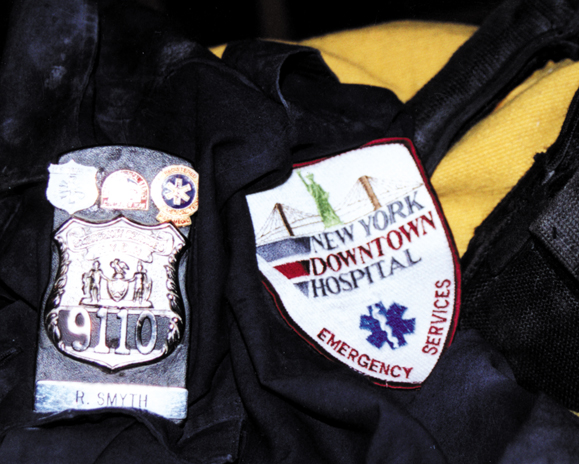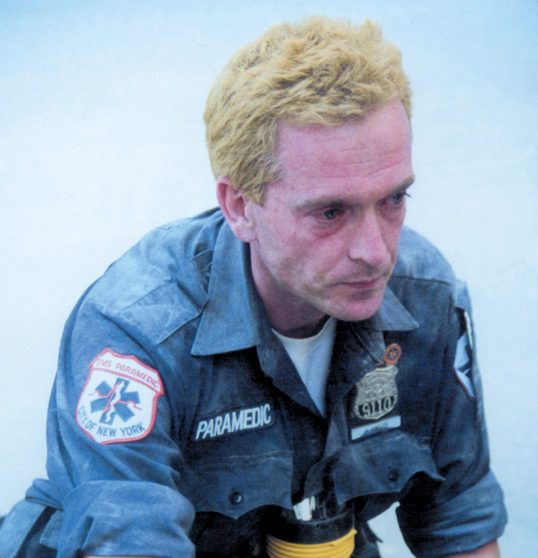Belfast native Roger Smyth moved to the U.S. five years ago and for the last three and a half years has worked at New York University Hospital’s downtown location on Gold and Beekman Streets, a few blocks from the World Trade Center.
At about 8:50 on the morning of September 11, Smyth was at home in Park Slope, Brooklyn, when a friend called to tell him that a plane had struck the WTC. He went up to his roof from where he has a clear view of downtown, and once he saw what was happening, he got in his car to go to NYU Hospital.
Driving on the Brooklyn Bridge, Smyth saw the second plane hitting the South Tower. Ten minutes later, he was in an ambulance on the short journey to the WTC. On arrival, he was assigned to the South Tower where he helped the wounded. He and his partner intubated a woman with serious burns and brought her to NYU and then onto the Burns Unit at Cornell Hospital when it was decided to transfer her there. It was while they were driving along the FDR back to the WTC that they saw the South Tower — where they had been shortly before — collapse. Smyth describes the scene: “It was utter devastation. The command units had been wiped out — there was nobody to give instructions. After the second tower fell there was nobody left for us to help, other than the rescue workers — we irrigated their eyes, helped with respiratory disorders and other injuries.”

Smyth spent 14 hours at Ground Zero on that day. In the chaos, he got separated from his partner and ended up working with another paramedic, Trin Dinh, who had also lost her partner (luckily both turned up safely later). “As far as I knew, I had lost my partner, but strangely, morale was good. We watched the three firefighters raise the flag, and that was a surreal moment. Even there, in the eerie silence, I think we were aware that it was a significant moment — something amazing to see. I don’t know if it was relief that I was alive or whether it was necessary to try to keep upbeat in the face of such tragedy, but we kept trying tell jokes to keep our spirits up. It wasn’t until I got back home at about 2:00 a.m. that it started to sink in. I sat down and had a beer with some friends and broke down and cried for about 20 minutes.”
Over the next four or five days that Smyth spent at Ground Zero in a voluntary capacity, in between his shifts at the hospital, he kept bumping into a group of firefighters of Ladder 7, Engine 16 and struck up a friendship with them. He became their personal paramedic for the time he was down there. He admits to feeling some degree of survivor’s guilt. “Visiting Ladder 7’s firehouse, I saw five or six families with children who had lost their father. As a single guy, I definitely felt guilty. On the day, we believed there might be the possibility of another attack. If I had kids, who knows how I might have felt about being there?” ♦


Leave a Reply